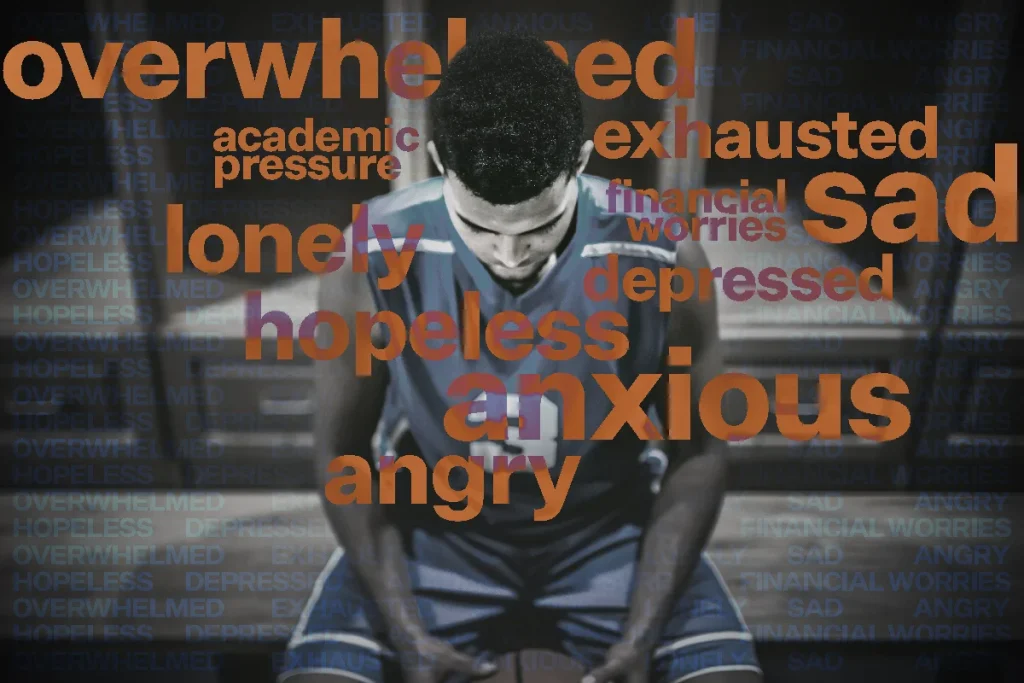The Student-Athlete Struggle: 4 Major Challenges and How to Overcome Them

Being a student-athlete means living in a constant state of tension between academic and athletic demands. The pressure to excel in both areas is immense, often leading to challenges with time management, physical and emotional fatigue, social life, and mental health. Recognizing these struggles is the first step toward finding effective solutions to help student-athletes succeed.
This article explores the key challenges student-athletes face, offering research-backed strategies to overcome them. We also hear from Bedri Parlar, a former high school student-athlete and incoming freshman at The Ohio State University, who shares his personal experience balancing academics and athletics.
1. The Time Management Tightrope
Balancing a demanding schedule is a core challenge for student-athletes. The rigorous hours spent in practice, training, and competition leave little time or energy for academic work, often forcing students to study late into the night. This constant juggling act requires immense discipline and strategic planning.
2. Physical and Emotional Burnout
The intense physical demands of sports lead to constant fatigue, muscle pain, and injuries. A study found that 45% of student-athletes suffer from sleep problems due to their packed schedules, which can hurt their ability to focus in class.
Beyond the physical toll, emotional exhaustion is a significant issue. The pressure to perform well in sports and academics can lead to high-stress levels.
3. Social Isolation
The demanding schedule of a student-athlete often makes it difficult to maintain a social life outside of their team. They miss out on typical school activities and social functions, which can lead to feelings of loneliness and isolation. These expectations can create a divide between athletes and their non-athlete peers, adding to the pressure.
4. Mental Health and Well-Being
The combined pressure to succeed academically and athletically can take a serious toll on mental health. Studies show that student-athletes experience higher rates of anxiety and depression than other students. For example, the American College of Sports Medicine reports that 30% of female and 25% of male student-athletes experience anxiety, often driven by pressure from coaches, teammates, and themselves.
Strategies for Success
Overcoming these challenges requires a holistic approach that focuses on support and self-care.
- Effective Time Management: Use planners or digital calendars to schedule classes, study time, and training sessions. This helps athletes visualize their week and avoid feeling overwhelmed.
- Utilize Academic Resources: Encourage students to take advantage of tutoring, study groups, and communication with teachers. Proactively talking to instructors about upcoming athletic commitments can help them manage their workload and reduce stress.
- Prioritize Mental Health: High schools should offer mental health support services. It is crucial for student-athletes to be mindful of their emotional state and not be afraid to ask for help when they feel overwhelmed.
- Maintain Physical Health: Incorporate rest and recovery into training schedules to prevent burnout and injury. Proper nutrition, hydration, and sleep are also vital for peak performance both in the classroom and on the field.
- Build a Strong Support Network: Teammates often become a second family, sharing a close-knit community that helps with personal and academic development. Students should also communicate with coaches, teachers, and family to create a positive support system.
A Student-Athlete’s Perspective: Bedri Parlar
Bedri Parlar, a former football player and high school Valedictorian, is a perfect example of what it takes to balance these demands.
“My junior and senior years were especially challenging because I was taking higher-level courses, and our practices were three hours long, five days a week,” he said. To manage his time effectively, Bedri created a weekly “hour audit.”
“By visualizing the time I had at my disposal, I was able to efficiently manage my time and keep myself from being overwhelmed,” he explained. “I even got my highest score on an ACT test right after a late-night football game because I had budgeted my time so efficiently.”
Bedri also learned the importance of listening to his body and mind. “A lot of student-athletes have a ‘tough guy’ mentality when it comes to injuries,” he noted. “But hiding the pain does nothing but put your team at a disadvantage and increases your chances of further injuring yourself.”
He urges other student-athletes to not be afraid to ask for help, whether it’s an extension on a school project or taking a break from practice. “I used to eat whatever I wanted and slept at sporadic times,” he said. “Once I started taking nutrition and recovery seriously, I felt a noticeable improvement in my attitude, athletic performance, and overall energy.”

